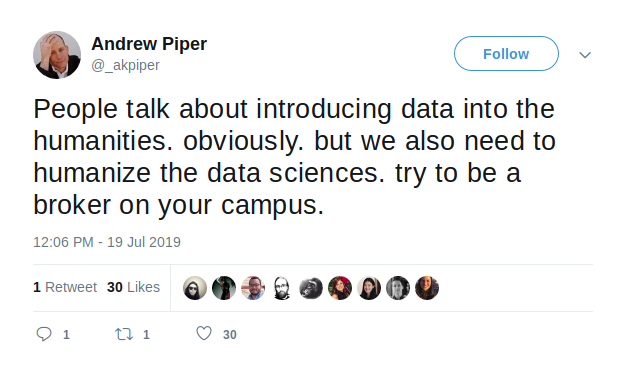Science for Society: Transfer, Innovation, Relevance
Panel: Michael Wiegand, Adam Anderson, Menna El-Assady, Christopher Nunn
The task at hand is to bridge the translational divide - between humanities scholars and computational scholars, but also between academia and society. This relies to a large extent on the willingness for interdisciplinary collaboration of excellently trained disciplinary scholars.
To PhD students: find allies and get active! Some disciplines may be more conservative than others – for instance, classical philological disciplines. It is therefore important to show that computation is not there to replace but complement traditionally hermeneutic methods and can enrich research. Don’t let yourself be encouraged and connect to peers inside and outside your discipline!
Listen to colleagues from other disciplines! What can you learn, what can you teach?
Humans will never be fully understood by machines - and humanities will always deal with essentially human puzzles. Machines may be able to aid - but: they are also human-made and they cannot solve moral dilemmas.
For the discipline this means that, while we strive make humanities more computational, humanities thinking is also crucial for the data sciences!
